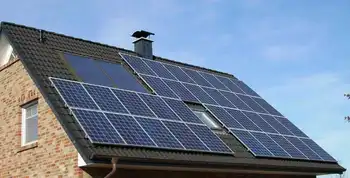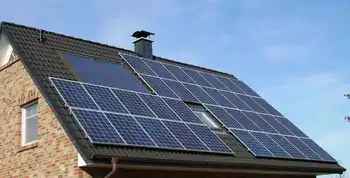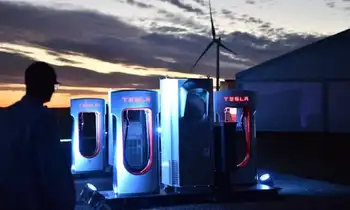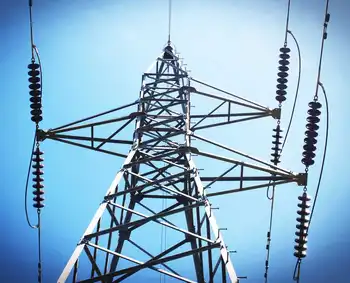Is it finally time to buy an electric car?
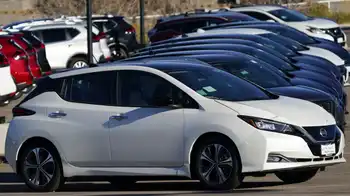
Arc Flash Training CSA Z462 - Electrical Safety Essentials
Our customized live online or in‑person group training can be delivered to your staff at your location.

- Live Online
- 6 hours Instructor-led
- Group Training Available
Electric Vehicles deliver longer range, faster charging, and broader price options, with incentives and lease deals reducing costs; evaluate performance, home charging, road trip needs, and vehicle types like SUVs, pickups, and vans.
Key Points
Electric vehicles are battery-powered cars that cut costs, boost performance, and charge at home or at fast stations.
✅ Longer range and faster charging reduce range anxiety
✅ Lower operating costs vs gas: fuel, maintenance, incentives
✅ Home Level 2 charging recommended; plan for road trips
Electric cars now drive farther, charge faster and come in nearly every price range. But when GMC began promoting its Hummer EV pickup truck to be released this year, it became even clearer that electric cars are primed to go mainstream for many buyers.
Once the domain of environmentalists, then early adopters, electric vehicles may soon have even truck bros kicking the gasoline habit, though sales are still behind gas cars in many markets.
With many models now available or coming soon — and arriving ahead of schedule for several automakers — including a knockoff of the lovable Volkswagen Microbus — you may be wondering if it’s finally time to buy or lease one.
Here are the essential questions to answer before you do.
(Full disclosure: I’m a convert myself after six years and 70,000 gas-free miles.)
1. Can you afford an electric car?
Electric vehicles tend to be pricy to buy but can be more affordable to lease. Finding federal, state and local government incentives can also reduce sticker shock. And, even if the monthly payment is higher than a comparable gas car, operating costs are lower.
Gas vehicles cost an average of $3,356 per year to fuel, tax and insure, while electric cost just $2,722, according to a study by Self Financial, and Consumer Reports finds EVs save money in the long run too. Find out how much you can save with the Department of Energy calculator.
2. How far do you need to drive on a single charge?
Although almost 60 percent of all car trips in America were less than 6 miles in 2017, according to the Department of Energy, the phrase “range anxiety” scared many would-be early adopters.
Teslas became popular in part because they offered 250 miles of range. But the range of many electric vehicles between charges is now over 200 miles; even the modestly priced Chevrolet Bolt can travel 259 miles on a single charge.
Still, electric vehicles have a “road trip problem,” according to Josh Sadlier, director of content strategy for car site Edmunds.com. “If you like road trips, you almost have to have two cars — one for around town and one for longer trips,” he says.
3. Where will you charge it?
If you live in an apartment without a charging station, this could be a deal breaker.
The number of public chargers increased by 60 percent worldwide in 2019, according to the International Energy Agency. While these stations — some of which are free — are more available, most electric vehicle owners install a home station for faster charging.
Electric vehicles can be charged by plugging into a common 120-volt household outlet, but it’s slow, and understanding charging costs can help you plan home use. To speed up charging, many electric vehicle owners wind up buying a 240-volt charging station and having an electrician install it for a total cost of $1,200, according to the home remodeling website Fixr.
4. What will you use the car for?
While there are a few luxury electric SUVs on the market, most electric vehicles are smaller sedans or hatchbacks with limited cargo capacity. However, the coming wave of electric cars are more versatile, and many experts expect that within a decade these options will be commonplace, including vans, such as the Microbus, and trucks, such as an electric version of the popular Ford F-150 pickup.
5. Do you enjoy performance?
This is where electric vehicles really shine. According to automotive experts, electric cars beat their gas counterparts in these ways:
Immediate response with great low-end acceleration, particularly in the 0-30 mph range.
Sure-footed handling due to the heavy battery mounted under the car, giving it a low center of gravity.
No “shift shock” from changing gears in a conventional gas car’s transmission.
Little noise except from the wind and tires.
Other factors
Once you consider the big questions, here are other reasons to make an electric car your next choice:
Reduced environmental guilt. There is a persistent myth that electric vehicles simply move the emissions from the tailpipe to the power generating station. Yes, producing electricity produces emissions, but many electric vehicle owners charge at night when much of the electricity would otherwise be unused. According to research published by the BBC and evidence that they are better for the planet in many scenarios electric cars reduce emissions by an average of 70 percent, depending on where people live.
Less time refueling. It takes only seconds to plug in at home, and the electric vehicle will recharge while you’re doing other things. No more searching for gas stations and standing by as your tank gulps down gasoline.
No oil changes. Dealers like a constant stream of drivers coming in for oil changes so they can upsell other services. Electric vehicles have fewer moving parts and require fewer trips to the dealership for maintenance.
Carpool lanes and other perks. Check your state regulations to see if an electric vehicle gets you access to the carpool lane, free parking or other special advantages.
Enjoy the technology. Yes, electric vehicles are more expensive, but they also tend to offer top-of-the-line comfort, safety features and technology compared with their gas counterparts.









